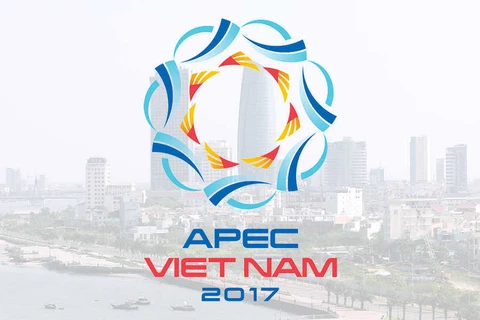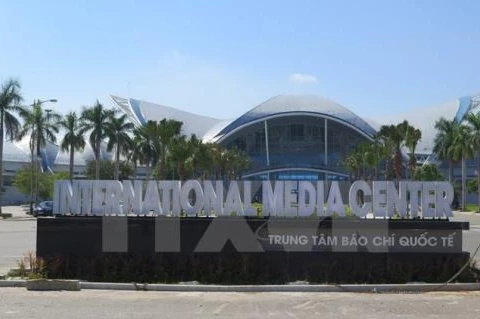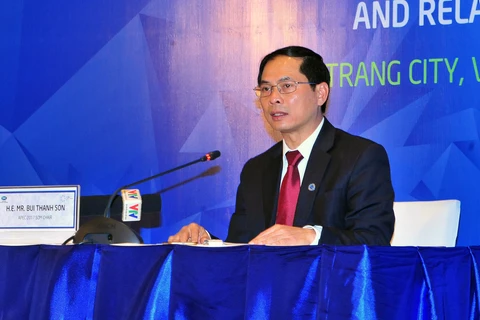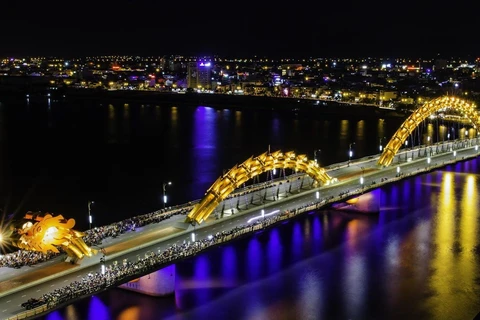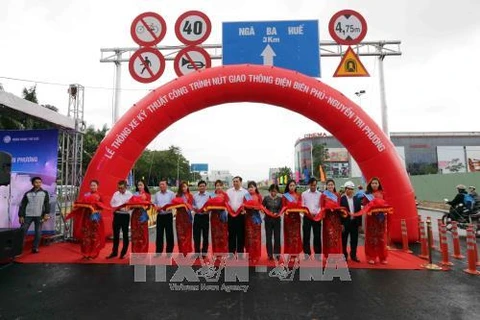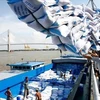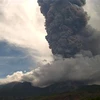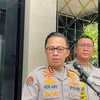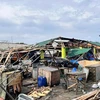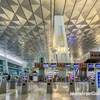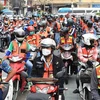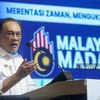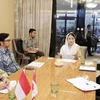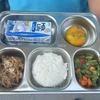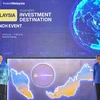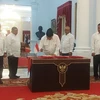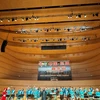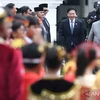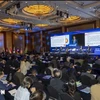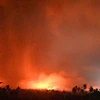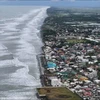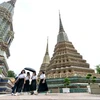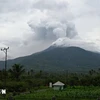 International media centre opened to serve APEC Economic Leaders' Week in Da Nang from November 4-11 (Photo VNA)
International media centre opened to serve APEC Economic Leaders' Week in Da Nang from November 4-11 (Photo VNA)Hanoi (VNA) – Vietnam will undertake the role of hosting the Asia-Pacific Economic Cooperation (APEC) Economic Leaders’ Meeting for the second time from November 5-11.
Through theme “Creating new dynamism, fostering a shared future”, Vietnam and member economies show their wish to contribute to common efforts towards the goal of building a vibrant and connected Asia-Pacific community via facilitating trade and investment liberalisation, regional economic connectivity, economic-technical cooperation, ensuring human security and creating a favourable and sustainable business environment.
Since its birth in November 1989 with 12 member economies, APEC has so far grouped 21 members after nearly 30 years of development, including nine from the G20 Group of Emerging and Developing Nations and many vibrant economies, representing 2.8 billion people, or 39 percent of the world’s population and contributing 43 trillion USD, or 57 percent of the gross domestic product and 20 trillion USD, equivalent to 49 percent of the global trade.
From the ministerial-level dialogue mechanism, APEC has become a leading economic cooperation mechanism in the region with outstanding and practical achievements across trade and investment liberalisation, trade facilitation, and economic and technical collaboration. As the global economic focus gradually moves to the Asia-Pacific – the highest growth area and a hub of new technologies and skilled workforce, APEC is recognised as a mechanism guiding trade and investment liberalisation, promoting global cooperation trend, making important contributions to economic growth and maintaining peace, stability, cooperation and development in the region and the world.
With the “initiative raising mechanism”, APEC provides a platform for policymakers, businesses, and scholars to meet annually to discuss initiatives helping Asia-Pacific economies catch up with constant developments in the region and the world, particularly in global economy and trade. Many initiatives pertaining to integration have been associated with APEC, namely the Asia-Pacific free trade area in 2006, the growth strategy in 2010, the master plan on connectivity in 2014, and the roadmap to competitiveness improvement in services in 2016.
From 2000-2015, the region’s total trade value rose 2.5-fold from 6.4 trillion USD to 16.5 trillion USD, nearly 67 percent of which was internal trade. The group is implementing long-term strategies and plans until 2025 on quality growth, human resources development and innovation.
From 1996-2015, the number of free trade and regional trade agreements put into force soared from 22 to 152 while 61 agreements were signed by member economies.
APEC member economies also took the lead in forming massive free trade agreements such as the Trans-Pacific Partnership, the Regional Comprehensive Economic Partnership, the ASEAN Community towards establishing the Free Trade Area of the Asia-Pacific, contributing to strengthening multilateral trade system within the World Trade Organisation framework.
APEC has put forth the economic and technical cooperation (ECOTECH) agenda to support human resources development and improve capacity for member economies, looking towards equal, balanced and sustainable economic development in the region and creating the most favourable conditions for the implementation of action programmes to realise the Bogor goals.
Since 1993, nearly 1,600 joint projects have been carried out and each year APEC provides financial support for about 150 projects worth 23 million USD.
In a constantly changing world where non-traditional security and terrorism emerge as one of the most serious threats, APEC has expanded its interest in security and political issues by issuing its own declaration on counter-terrorism and climate change adaptation.
The forum has also adopted a number of initiatives in the fields of aviation security, railway, navigation, food safety, and prevention of natural disasters and diseases, among others.
APEC has successfully built joint activities and action programmes of each member economy. Meanwhile, member economies need to show their firm political will and increase mutual trust to develop Asia-Pacific into one of the world’s most dynamic investment and trade liberalisation regions.
Established in 1989, APEC comprises Australia, Brunei, Canada, Chile, China, Hong Kong (China), Indonesia, Japan, the Republic of Korea, Malaysia, Mexico, New Zealand, Papua New Guinea, Peru, the Philippines, Russia, Singapore, Chinese Taipei, Thailand, the US, and Vietnam.-VNA
VNA
